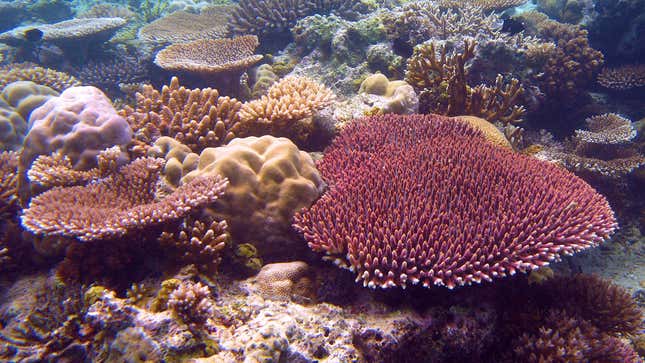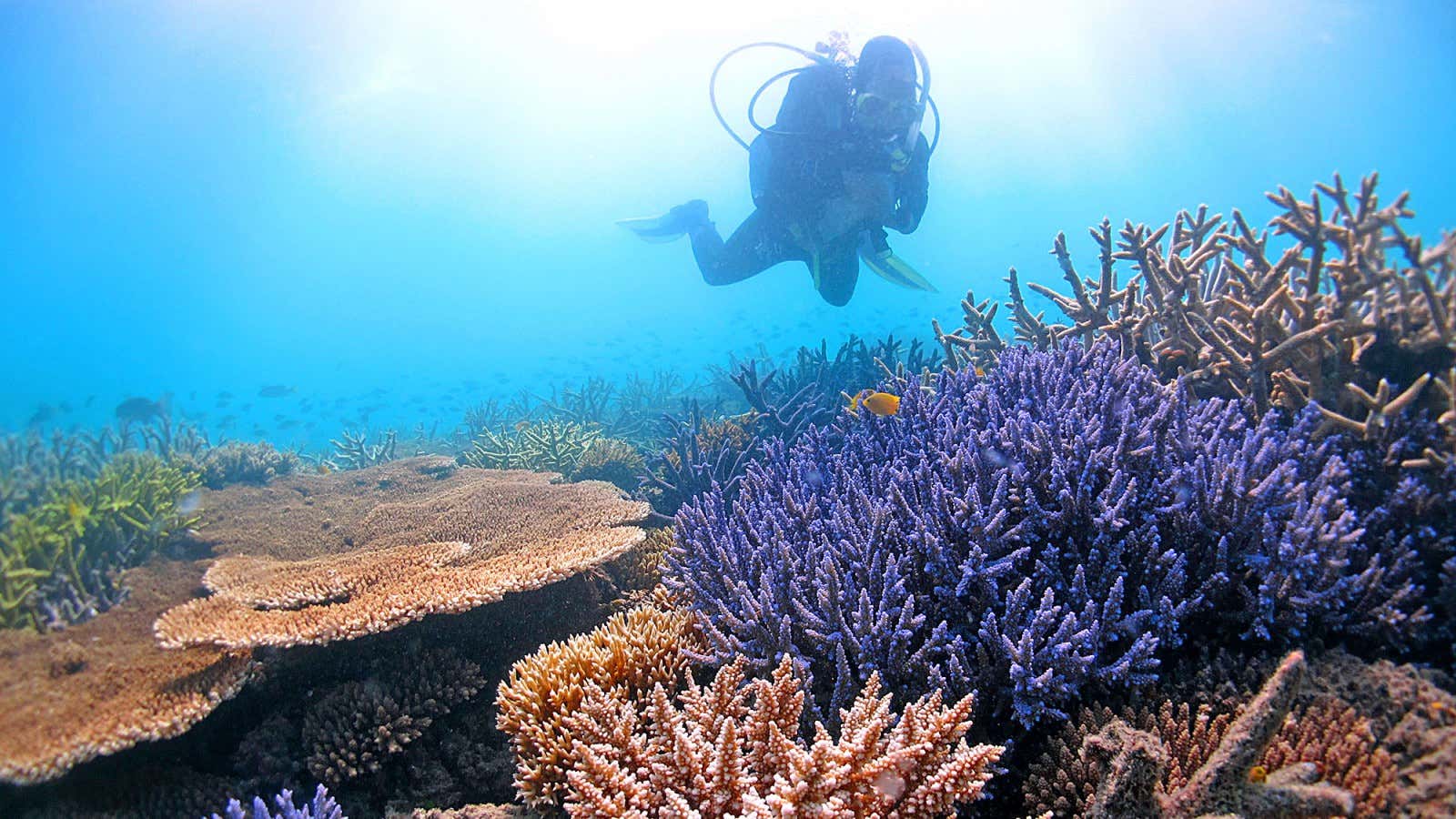Corals—like all marine animals—are at risk as oceans warm up because of climate change. But corals aren’t just organisms; they create an environment for others to thrive in. So losing them will mean losing the many diverse species that they shelter and provide food for.
Although human activity is the main cause behind climate change today, the natural world is not a stranger to it. If there is enough time to procreate, evolution ensures that species adapt to the new climate. The worry this time around is that the temperatures are changing too fast for such adaptions, and the uneven impact these changes may have could accelerate the loss of corals because of extreme weather events.
Fortunately, that may not be the case for some corals. A study just published in Science shows that some species of corals could adapt to handle the extreme weather events that will likely come with climate change.
Researchers from the Australian Institute of Marine Science and the University of Texas at Austin cross-bred the same species of corals from two locations in Australia, one 300 miles south of the other. The corals at the more northern location—closer to the equator—were accustomed to temperatures about 5 degrees Fahrenheit warmer than the ones further south. They found that the corals that bred with northern parents were 10 times more likely to survive extreme heat—temperatures that reached 35.5 Celsius (about 96 degrees Fahrenheit) over 24 hours—for up to 31 hours.
This resilience will be important, lead author Mikhail Matz told Quartz, as these kinds of extreme spikes become common, rather than gradual increases over time.

This research focused only one species of coral—Acropora millepora—but Matz, a marine biologist from the University of Texas at Austin, is hopeful that many corals will exhibit similar behavior. And although Matz intervened to cross-breed the two organisms from different locations, he said that such cross-breeding often happens naturally. Some corals reproduce by releasing young fertilized corals into the water, and many will travel far before settling down on a solid surface to mature.
“We anticipate that most, if not all, corals sharing the same reproductive strategy will show similarly variable and heritable heat tolerance,” he told Quartz. Matz also thinks that other corals in the Acropora family, which are relatively common in the Indian and Pacific Oceans, will behave in a similar way.
Corals are also extremely vulnerable to ocean acidification, which happens as a result of extra carbon dioxide in the atmosphere. This study focused specifically on the warming temperatures, and more research will have to be done to assess how corals will fare as other aspects of the marine environment change over time.




